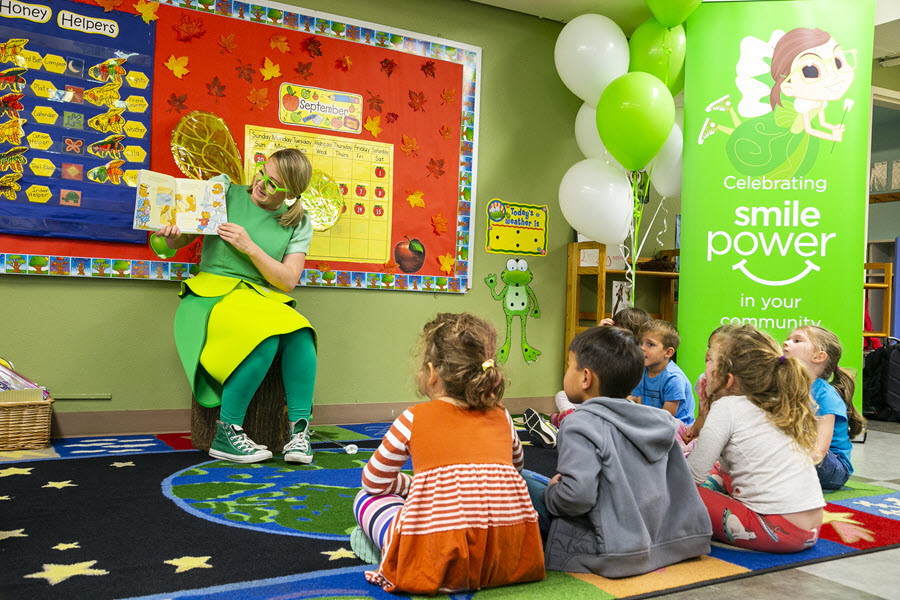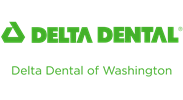
Editor's note: This article was sponsored by Delta Dental of Washington.
As with the effects of a child’s bad sunburn possibly resurfacing later in life, most parents are unaware that tooth decay in children can have effects that linger far past the loss of their primary (or “baby”) teeth. Delta Dental of Washington explains the importance of your child’s dental health and how to keep their baby teeth healthy.
Not permanent, but not unimportant
Baby teeth (also known as primary teeth) are not permanent, and generally come in between 6 and 12 months of age. These stay in a child’s mouth until 6–8 years of age, when primary teeth begin to fall out as adult teeth emerge to take their place. Although the presence of baby teeth in their child’s mouth is temporary, a parent shouldn’t risk treating their child’s teeth as temporary. Good dental hygiene habits formed early in life can positively affect a child’s immediate health as well as prevent health issues later in life. Decayed primary teeth can affect a child’s speech, cause pain or lead adult teeth to grow in incorrectly, necessitating correction.
Teamwork makes the teeth work
Many parents are confused about how best to care for their children’s teeth. According to the Centers for Disease Control and Prevention, “Although dental caries are largely preventable, they remain the most common chronic disease of children aged 6 to 11 years and adolescents aged 12 to 19 years.” When children begin to get their primary teeth, it’s important to take them to a pediatric dentist as soon as is recommended — generally from six months to one year after their first tooth comes in. Such professionals can help parents better care for their children’s teeth while establishing a positive association for children with dental health practices and providers. Helping your child learn the most important aspects of dental health can be instrumental in building understanding and good habits that will shape their health in the future. Limiting their access to easily consumed sugars — such as soda or juice — can help limit plaque buildup and tooth decay.
All about enamel
The enamel that coats a child’s teeth is the hardest part of the human body, but that doesn’t mean it’s indestructible. Enamel can be broken down by acids, starches or sugar, which can lead to irreversible coloring of the teeth as well as pain. Enamel is not created after a tooth erupts, so a loss of enamel can lead to permanent discoloration and sensitivity. Beyond that, much of your teeth’s enamel cannot be cleaned solely by a toothbrush — flossing, along with brushing, is imperative to protecting the enamel of your children’s teeth. That’s why it’s essential to instill in your child the importance of protecting the enamel on their “trial run” of teeth before their hygiene habits have more lasting consequences.
Don’t give in to “anxie-teeth”
A loose tooth is sure to invite fiddling, preoccupation and impatience; like having an itch you can’t scratch, it can be difficult for children to deal with. However, it’s important to be patient and careful, instead of reaching for the string and a doorknob. Premature extraction of primary teeth can lead to myriad issues with adult teeth, including premature or late eruptions, overcrowding and gum damage. These issues and others can negatively impact the health of your child or necessitate costly reconstructive work or braces later in life. If a tooth is pulled prematurely, a spacer put in by a pediatric dentist is recommended to promote the growth of a healthy smile.
Dental health will be vital throughout your child’s life, but it will seldom be as fundamental as during their formative years. Proper dental health and upkeep at this stage can positively affect and promote healthy growth and development in the long run. Educating yourself and your children about the importance of dental health and the consequences of shirking such a necessity will help ensure the health of your child and give them a glowing smile!
About Delta Dental of Washington
Delta Dental of Washington is the state’s leading dental benefit provider, covering nearly 3 million people in Washington state and nationally. Delta Dental of Washington believes in the importance of dental health education and has launched The Tooth Fairy Experience, an interactive and fun dental education program that shares valuable knowledge with children ages 10 and under about how they can better take care of their smiles. Visit the website to see all upcoming community appearances by the Tooth Fairy. |










